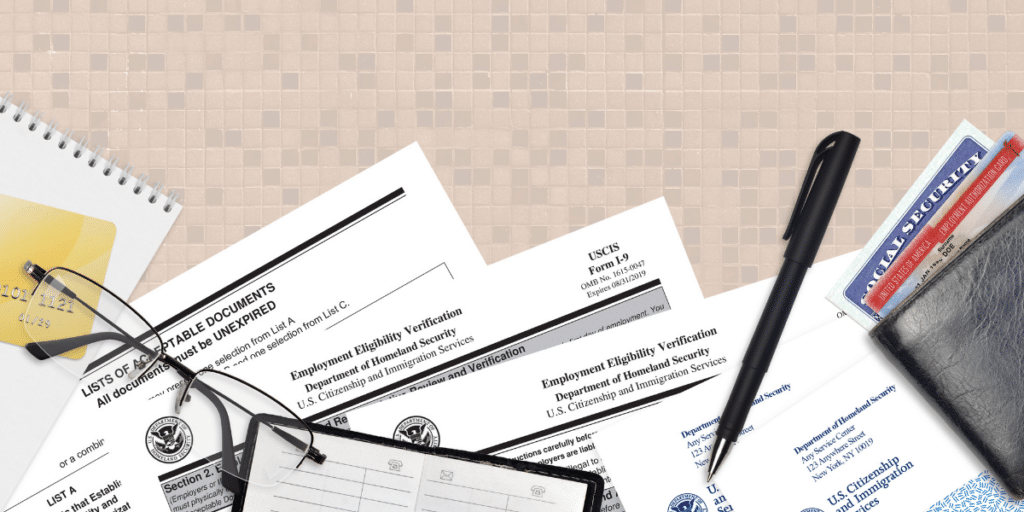Recently, there was a headline in the news: “Mega Millions lottery winner has to share $15 million of the jackpot with his ex-wife.” The suburban Detroit man, Richard Zelasko, and his then-wife, Mary Elizabeth Zelasko married in 2004, had two kids, separated in 2009, and filed for divorce in late 2011. In July 2013, before their divorce was final, Richard won the $80 million Mega Millions jackpot. The arbitrator ruled and the Michigan Court confirmed, the winnings were part of the couple’s marital assets and awarded $15 million to the wife and divided the rest of their assets.
While most of us will never win the lotto, the circumstances surrounding the classification and distribution of the lottery winnings (i.e., assets) do affect couples who are separated but not yet divorced. In North Carolina, spouses must be separated a year and a day before they may request a divorce from the Court. Separation occurs when the parties no longer reside in the same residence and one of them no longer has the intent to be married. During this period of separation, what happens to a couple’s assets and debts? What happens to the income earned during the separation? What happens if one spouse wins the lotto?
In North Carolina, there are three kinds of property for purposes of equitable distribution: marital, divisible, and separate property. Upon application of a party, the Court determines what is the marital property and divisible property of the marriage, and provides for an equitable distribution (i.e., fair distribution) after considering a number of factors enumerated in our statute.
Marital property means all real and personal property acquired by either spouse or both spouses during the course of the marriage and before the date of the separation of the parties, and presently owned. Marital property includes all vested and nonvested pension, retirement, and other deferred compensation rights, and vested and nonvested military pensions. It is presumed that all property acquired after the date of marriage and before the date of separation is marital property. The presumption may be rebutted.
Separate property means all real and personal property acquired by a spouse before marriage or acquired by a spouse by devise, descent, or gift during the course of the marriage. Separate property acquired in exchange for separate property remains separate property regardless of whether the title is in the name of the husband or wife or both, unless a contrary intention is expressly stated in the conveyance. The increase in value of separate property and the income derived from separate property is also considered separate property. After the date of separation spouses acquire separate property. For example, after the date of separation, income earned is a spouse’s separate property; however, a bonus or commission earned before the date of separation, which is paid after the date of separation, remains marital property.
Divisible property is created in a number of ways. It includes all appreciation and diminution in the value of marital property occurring after the date of separation and prior to the date of distribution, unless it is the result of postseparation actions or activities of a spouse. It is all property, property rights, or any portion thereof received after the date of separation but before the date of distribution that was acquired as a result of the efforts of either spouse during the marriage and before the date of separation, including but not limited to, commissions, bonuses, and contractual rights. The passive income from marital property received after the date of separation, including but not limited to, interest and dividends is divisible property, along with the passive increases and passive decreases in marital debt and financing charges and interest related to marital debt. For example, after the date of separation, the increase or decrease in the value of a spouse’s 401K because of the market, not contributions of a spouse, are divisible property; on the other hand, a spouse’s contributions to their 401K after the date of separation is separate property, not divisible property.
Based on North Carolina’s equitable distribution statutes, it is likely there would have been a different outcome in the Zelasko case. As long as Richard Zelasko purchased the winning lottery ticket after the date of separation with his separate funds (e.g., income he earned after the date of separation), it is likely a Court would find the lottery winnings were his separate property, and not subject to distribution.
While you may not have lottery winnings to consider, it is important to understand the way your assets and debts will be treated during the separation, at the time of distribution, and upon your divorce. If you are considering a separation and divorce, you should seek the assistance of a family law attorney to learn more. At Dozier Miller Law Group, we have 10 family law attorneys handling domestic matters in North Carolina. Contact a member of our family law team today and schedule your initial consultation.

CATEGORIES
Contact an Attorney
Our attorney offer specialized guidance and representation in a variety of practice areas.

REMEMBER: Always speak with your own attorney
This information is provided for informational purposes only; it is not offered as and does not constitute legal advice.
More Insights and Resources
Learn more about what to expect when facing a family law dispute in Charlotte, North Carolina from Family Law attorneys at Dozier Miller Law Group
Protect What Matters Most: Estate Planning for Every Stage of Life
Thinking about the future doesn’t always come naturally. Many of us get caught up in the day-to-day,…
Will a Separation Protect Me Financially?
Separation is never easy, especially when financial questions start piling up. Can you protect your savings? Will…
Practical Custody Arrangements for Families
Trying to figure out custody arrangements? You’ve probably come across terms like joint custody, primary custody, and…
Future-Proof Your Business Against Form I-9 Changes
Running a business is no small feat. Between managing your team, keeping customers happy, and planning for…
When Do You Need an Attorney for a Breach of Contract Case?
Contracts are the backbone of any good business relationship. They bring clarity, set expectations, and hold everyone…
Navigating Immigration Changes and Their Impact on Employment Law
No matter the size of your business, immigration law affects your ability to hire and retain the…
LGBTQ Families and Stepparent Adoption: What You Need to Know in North Carolina
As a family law attorney in North Carolina, I’ve seen many parents assume that their legal status…
What to Do When You Get a Bad Google Review
If you’re a Charlotte business owner, you know just how important your online reputation is. Around 98%…
Managing Your Immigration Status in 2025
The 2024 election brought significant shifts to U.S. immigration policy, many of which have already begun reshaping…
Plan Now for Summer Child Custody Arrangements
It might not feel like it, but summer break will be here before you know it. For…










